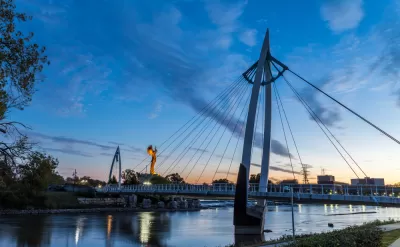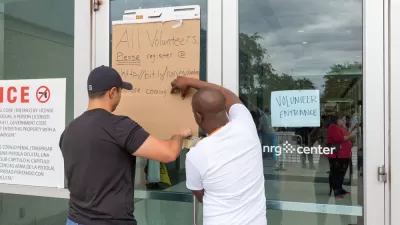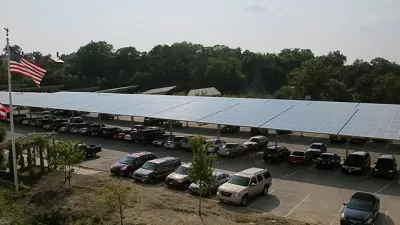FiveThirtyEight explores how planners in the Midwest are trying to get ahead of an intensifying climate.

Across the Midwest, weather patterns are changing fast. Storms are starting earlier and hitting harder, and floods are coming faster and with less warning. And what used to be considered unusually intense rainfall—a "mega-rain" event—is quickly threatening to become the new normal. FiveThirtyEight's Ella Koeze delves into the fundamental challenges this shift poses to existing infrastructure, emergency management, and city planning efforts throughout the Midwestern states.
For one, the need to invest in more robust and durable infrastructure is becoming increasingly clear: "While the design standard has been to build roads, buildings and other infrastructure in a way that can withstand a hundred-year storm, some engineers are considering whether it's time to build for a 500-year storm, with the expectation that soon it might no longer be such a remote possibility," Koeze writes.
But before cities can start planning how to overhaul their major infrastructure, they need data they've never had before. "The precipitation estimates that city planners have relied on in making preparations for flooding are based on historical weather trends, not predictions of future trends," Koeze explains. "The estimates do not take into account how climate change might influence precipitation in the future." Until new prediction models are developed, planners are doing what they can—focusing on bolstering emergency systems.
More information and helpful infographics are on FiveThirtyEight.com.
FULL STORY: The Midwest Is Getting Drenched, And It’s Causing Big Problems

Planetizen Federal Action Tracker
A weekly monitor of how Trump’s orders and actions are impacting planners and planning in America.

Restaurant Patios Were a Pandemic Win — Why Were They so Hard to Keep?
Social distancing requirements and changes in travel patterns prompted cities to pilot new uses for street and sidewalk space. Then it got complicated.

Map: Where Senate Republicans Want to Sell Your Public Lands
For public land advocates, the Senate Republicans’ proposal to sell millions of acres of public land in the West is “the biggest fight of their careers.”

Maui's Vacation Rental Debate Turns Ugly
Verbal attacks, misinformation campaigns and fistfights plague a high-stakes debate to convert thousands of vacation rentals into long-term housing.

San Francisco Suspends Traffic Calming Amidst Record Deaths
Citing “a challenging fiscal landscape,” the city will cease the program on the heels of 42 traffic deaths, including 24 pedestrians.

California Homeless Arrests, Citations Spike After Ruling
An investigation reveals that anti-homeless actions increased up to 500% after Grants Pass v. Johnson — even in cities claiming no policy change.
Urban Design for Planners 1: Software Tools
This six-course series explores essential urban design concepts using open source software and equips planners with the tools they need to participate fully in the urban design process.
Planning for Universal Design
Learn the tools for implementing Universal Design in planning regulations.
Heyer Gruel & Associates PA
JM Goldson LLC
Custer County Colorado
City of Camden Redevelopment Agency
City of Astoria
Transportation Research & Education Center (TREC) at Portland State University
Camden Redevelopment Agency
City of Claremont
Municipality of Princeton (NJ)





























